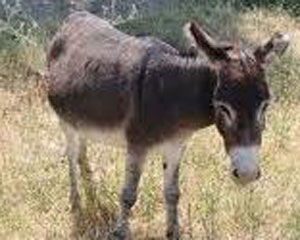
International animal welfare charities The Donkey Sanctuary and Society for the Protection of Animals Abroad (Spana) have applauded Zimbabwe’s strong legal position against the emerging donkey meat and hide trade.
By Oscar Nkala
The two organisations, which are leading efforts to draw worldwide attention to the trade in donkey skins, funded and addressed a one-day conference to discuss the donkey trade in Bulawayo last week.
The conference came against a background of concerns over plans by Battlefront Investments, a Bulawayo-based meat value chain operator, to open a donkey abattoir with a slaughter capacity of 70 animals per day.
The abattoir, which was a joint venture business with unnamed Chinese partners, was planned to meet the insatiable demand for donkey skins for the production of ejiao, which is used in traditional Chinese medicine products.
In a statement released after the conference, the organisations hailed Zimbabwe and called on the government to take further action to protect the country’s equine population.
One of the major outcomes of the conference was clarity that the legal position of the Lands, Agriculture and Rural Resettlement ministry is that no donkey abattoir can be licenced in Zimbabwe as meat produce export legislation does not include donkeys.
“The conference was supported by deputy director of the (Department of) Veterinary (Services) Public Health Division, Dr Jairus Machakwa, who confirmed that produce export legislation in Zimbabwe does not include donkeys or any other equines, meaning that these animals may not be slaughtered for meat export — and by implication nor may their skins be exported.”
- Chamisa under fire over US$120K donation
- Mavhunga puts DeMbare into Chibuku quarterfinals
- Pension funds bet on Cabora Bassa oilfields
- Councils defy govt fire tender directive
Keep Reading
“Both The Donkey Sanctuary and Spana publicly support Zimbabwe’s efforts to reject the slaughter of donkeys and the trade in their skins for use in traditional Chinese medicine, but want the government to take further action to safeguard the country’s equine population.”
The Donkey Sanctuary head of programmes Alex Mayers said the organisations were happy with Zimbabwe’s stand against the trade so far.
“We are now calling on Zimbabwe to enforce their stand and help communities to prevent theft and the risk of live donkeys being exported to neighbouring countries with poor welfare and disease transmission implications,” Mayers said.
Keith Dutlow, Spana Zimbabwe country director, said donkeys play a vital role in providing for the daily livelihoods for rural communities.
“So this conference was designed to raise awareness about the incredibly harmful long-term impact the skin trade is having,” he said.
“Our aim is to prevent the devastation caused by this horrific trade, which is destroying rural communities, undermining communities and leading to the brutal slaughter of a vast number of animals throughout Africa.”
The conference was hosted by local animal rights organisations Animal and Wildlife Research and Rehabilitation and Lupane Youth for Development.
Local traditional leader Chief Jahana said all along, the communities believed that the donkey meat and hide trade presented no risks.
“We thought this [trade/slaughter] was a donkey meat enterprise and as no one here eats donkey meat, we never thought it would be a big risk,” he said.
“Now we are learning about the actual situation and we see the threat is real.”
The conference follows government’s refusal to licence the country’s first donkey abattoir in Bulawayo.










